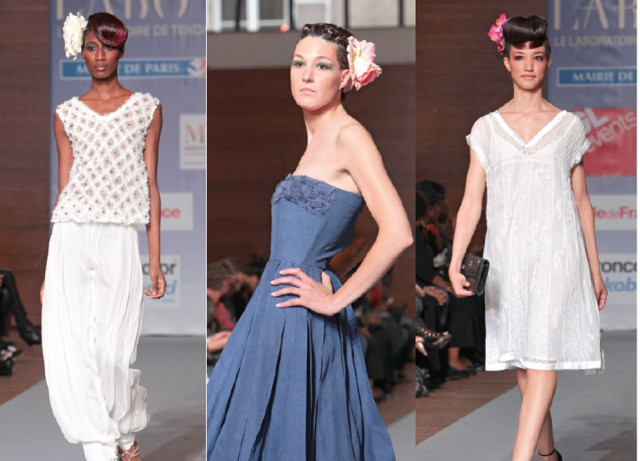When art battles violence
An artist uses his brush and palette to paint the anguish of the people.

Ammad Tahir, who stepped out of the Indus Valley School of Art and Architecture in 2008 as an art major, started his journey as an artist by lending voice to the women of society, who he felt were underrepresented. However, what he once saw as “violence by men on women” has now turned into sympathy towards men themselves, who are being gunned down daily by other men.
“I always felt like I was being scrutinised by the people around me who failed to keep an open mind,” said Tahir, who was of the belief that being placed under the magnifying glass for so long has made him empathise with the people who are in minority and are being targeted in a more heinous manner.
“War is [knocking on] our doorsteps. Swat is a battle zone in much the same way as Balochistan with its military operations and Karachi with its target killings,” Tahir added while explaining how the battle on the streets had forced him to battle with his own feelings and come up with a way to channel them onto the canvas. Tahir thought it fit to display this labour of love, which took months to take shape as a body of work, at his first solo exhibition - currently up at the Goethe art gallery, where it will remain till June 30.
While Tahir admits that he has remained true to the elements seen in his earlier works, he says that the visual language has undergone a complete change. “You can still see human forms in my work. But what was earlier a more fluid representation is now a very serious subject which must be dealt with in a similar fashion,” he said.
Tahir’s paintings unleash a violence that echoes the aggression on the streets. He has used acrylic paints, ink, graphite, pen and paper to illustrate the aggression that has become almost a subconscious reflex for most in our society.
While one of his paintings depicts a mass of dead sea-creatures, symbolic of the brutal killings in the city, another painting shows the other side of society as consumed with commercialism and superficial issues.
“We show no remorse for the meaningless loss of lives. Neither do we raise our voice against the elements that attack people over issues of ethnicity, race and caste,” said Tahir. “It shows how controversial our society is.”
This subject has been dealt with in all of his art. For Tahir, who has spent his entire life in Karachi, once proverbially recognised as a city of lights, his home has been reduced to sheer chaos.
“This is all that the media portrays. Everyday. Violence. And in this situation, it makes no sense to draw flowers and beautiful scenery,” said Tahir. “People in this country are already dying because of poverty, rains, power failures. They are now also being gunned down.”
Tahir has picked up on another theme in his work, seeking to defend the eunuch community.
“The minorities are more vulnerable and can easily fall prey to oppression and violence. They are backed into a corner, against the larger set up,” said Tahir, explaining how their emotions highlight a major part of his artwork.
“When you and I see eunuchs, we think of them as abnormal and hate them for being different,” said Tahir, who was of the belief that this sort of hatred drives people to attack the defenceless with an unjustifiable desire to seek revenge for something that they have no control over.
“Eunuchs took a very bold step by appealing to the Supreme Court. But they are still on the streets and without any rights,” said Tahir, who added that Pakistan, as a country, has more resources than countries like India, which should be used to better the country instead of running it down.
“We are better than them [India]. Yet our media is more interested in depicting drama rather than the good we have to offer. This further alienates our people” he said, concluding that the road to progress lies in unity, rather than a baseless desire to destroy.
Published in the Express Tribune, June 18th, 2010.



















COMMENTS
Comments are moderated and generally will be posted if they are on-topic and not abusive.
For more information, please see our Comments FAQ